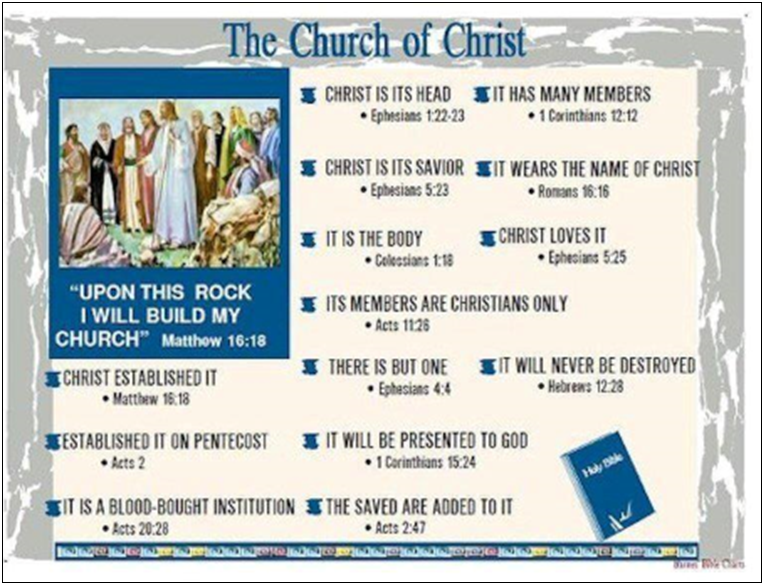“Why Gather with His Body” by Neville Buchanan

So, you attend the Church of Christ faithfully (you show up for our Sunday 10am Bible Study, Sunday 11am & 6pm Worship Service, and our Wednesday 7pm Bible Study). But why? Why do you do this? Could it be that you have PRIORITIZED your JOURNEY TO HEAVEN?
• Could it be that you VALUE YOUR SOUL and the souls of others?
• Could it be that you believe that the ONE TRUE CHURCH is the vehicle to heaven?
• Could it be that you believe in the INSPIRATION OF THE SCRIPTURES?
• Could it be that you believe these inspired scriptures are your LAMP AND LIGHT POINTING TO HEAVEN?
• Could it be that you want to LEARN HOW TO USE YOUR GIFTS and blessings that you received upon baptism?
• Could it be that you want to learn WHAT GOD
EXPECTS of you after you were baptized?
• Could it be that you believe COMING TOGETHER TO ENCOURAGE one another is a fruit of the spirit?
• Could it be that you want to LEARN HOW NOT TO STEP OUT of the path that leads to heaven?
• Could it be because you desire to WORSHIP GOD IN REVERENCE and respect?
• Could it be that you DO NOT WANT TO FALL FROM HIS GRACE?
• Could it be that you do not want to disappoint the
EXPECTATIONS THAT CHRIST HAS FOR YOUR LIFE?
• Could it be that you want to LEARN HOW TO EVANGELIZE the lost?
Friend, how much do you love His Body? No, you don’t have to tell me.
Thus, you will recognize them by their fruits. “Not everyone who says to me, ‘Lord, Lord,’ will enter the kingdom of heaven, but the one who does the will of my Father who is in heaven (Mt 7:20–21 ESV).










